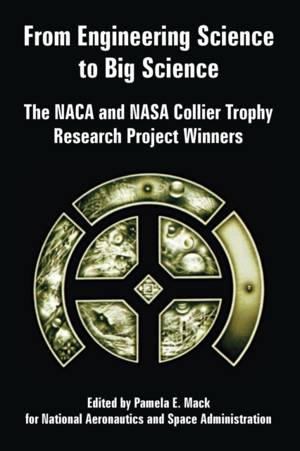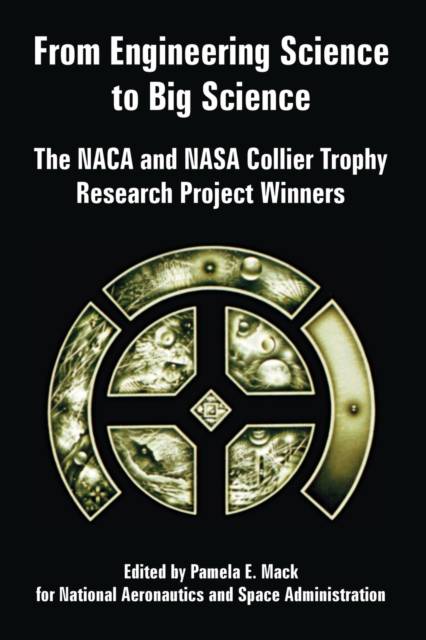
- Retrait gratuit dans votre magasin Club
- 7.000.000 titres dans notre catalogue
- Payer en toute sécurité
- Toujours un magasin près de chez vous
- Retrait gratuit dans votre magasin Club
- 7.000.0000 titres dans notre catalogue
- Payer en toute sécurité
- Toujours un magasin près de chez vous
From Engineering Science to Big Science
The NACA and NASA Collier Trophy Research Project Winners
Nasa
Livre broché | Anglais
46,95 €
+ 93 points
Description
Within a short time of the first flight of the Wright brothers in 1903, the United States government recognized the importance of fostering development in the new and critical field of aeronautics. NASA's predecessor, the National Advisory Committee for Aeronautics (NACA), was chartered by Congress in 1915 specifically "to supervise and direct the scientific study of the problems of flight, with a view to their practical solution." This became an increasingly important government research and development (R&D) activity for the next half century. The results of the NACA's research appeared in more than 16,000 research reports of one type or another, and many are still being used today. Since the creation of NASA in 1958, this critical aerospace R&D function has continued. From Engineering Science to Big Science consists of essays on individual aerospace R&D projects throughout the history of both the NACA and NASA. These R&D projects are unified by the fact that each received the coveted Robert J. Collier Trophy for their numerous advances in the performance, efficiency, or safety of flying vehicles. Throughout the life of the NACA and NASA the agency or its personnel have received awards, i.e., the NACA Engine Cowling in 1929, in addition to four awards by 1954, and fourteen awards for R&D since the NASA establishment. Pamela E. Mack has edited a comprehensive and illuminating collection of articles on this important subject which provides a valuable and comprehensive analysis of key R&D projects. Pamela E. Mack is associate professor of history at Clemson University, a Ph.D. in the history of technology from the University of Pennsylvania, and the author of the seminal study, Viewing the Earth: The Social Construction of the Landsat Satellite System.
Spécifications
Parties prenantes
- Auteur(s) :
- Editeur:
Contenu
- Nombre de pages :
- 456
- Langue:
- Anglais
Caractéristiques
- EAN:
- 9781410225313
- Date de parution :
- 21-03-06
- Format:
- Livre broché
- Format numérique:
- Trade paperback (VS)
- Dimensions :
- 152 mm x 229 mm
- Poids :
- 662 g

Les avis
Nous publions uniquement les avis qui respectent les conditions requises. Consultez nos conditions pour les avis.






